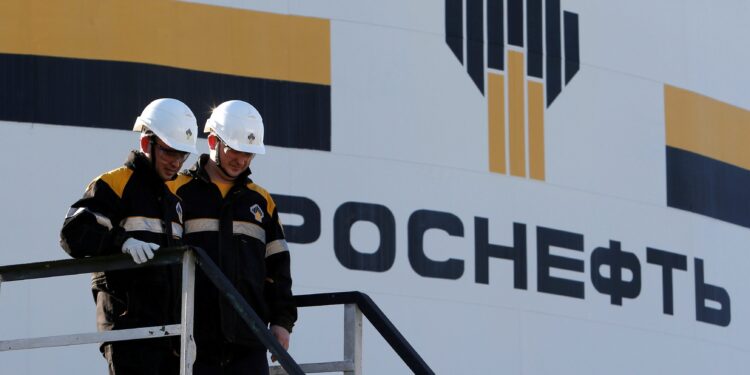Rosneft, Russia’s largest oil producer, has reported a decrease in its oil and gas condensate output during the second quarter of this year. This reduction in production, amounting to a 2.2% drop to 3.9 million barrels per day, is attributed to the agreement with the OPEC+ group of oil producers to curb overall production levels. The company’s first-half sales also declined significantly, reaching 3.9 trillion roubles ($41 billion), down by over 25% from the previous year due to weakened oil prices.
Despite the challenges, Rosneft’s revenue for the reported quarter managed to increase by 12.1%, reaching 2 trillion roubles. In a notable move, the company has diversified its oil sales away from Europe to various global regions, particularly in Asia, in response to the Western-imposed sanctions following Russia’s actions in Ukraine. This strategic shift has enabled Rosneft to navigate the evolving market dynamics.
The company’s CEO, Igor Sechin, a close associate of Russian President Vladimir Putin, highlighted the changing tax environment and legislative adjustments as factors contributing to the challenges faced by the company. Despite these hurdles, Rosneft maintained its sustainable financial performance through efforts to control costs amidst market price fluctuations.
It’s worth noting that profits for major global oil players have experienced a significant decline this year, partly due to a reduction from the record-breaking gains in 2022. The situation was exacerbated by Russia’s involvement in Ukraine, which led to soaring oil and gas prices. Gazprom, the Kremlin-controlled natural gas giant, also faced challenges, posting a net loss in the second quarter of 2023 following the collapse of gas exports to Europe.
The oil market’s landscape has been influenced by the actions of the Organization of the Petroleum Exporting Countries (OPEC) and its allies, led by Russia, which implemented supply curbs to stabilize the market. The constraints were extended into 2024 to further support price stability.
Rosneft’s earnings before interest, taxes, depreciation, and amortization (EBITDA) experienced a modest decline of 5.1% during the January-June period, amounting to 1.4 trillion roubles. The company attributed this drop to the increase in sales to Asia, particularly India and China, which helped offset the decline in revenue and contributed to sustaining the financial performance despite the ongoing challenges.










